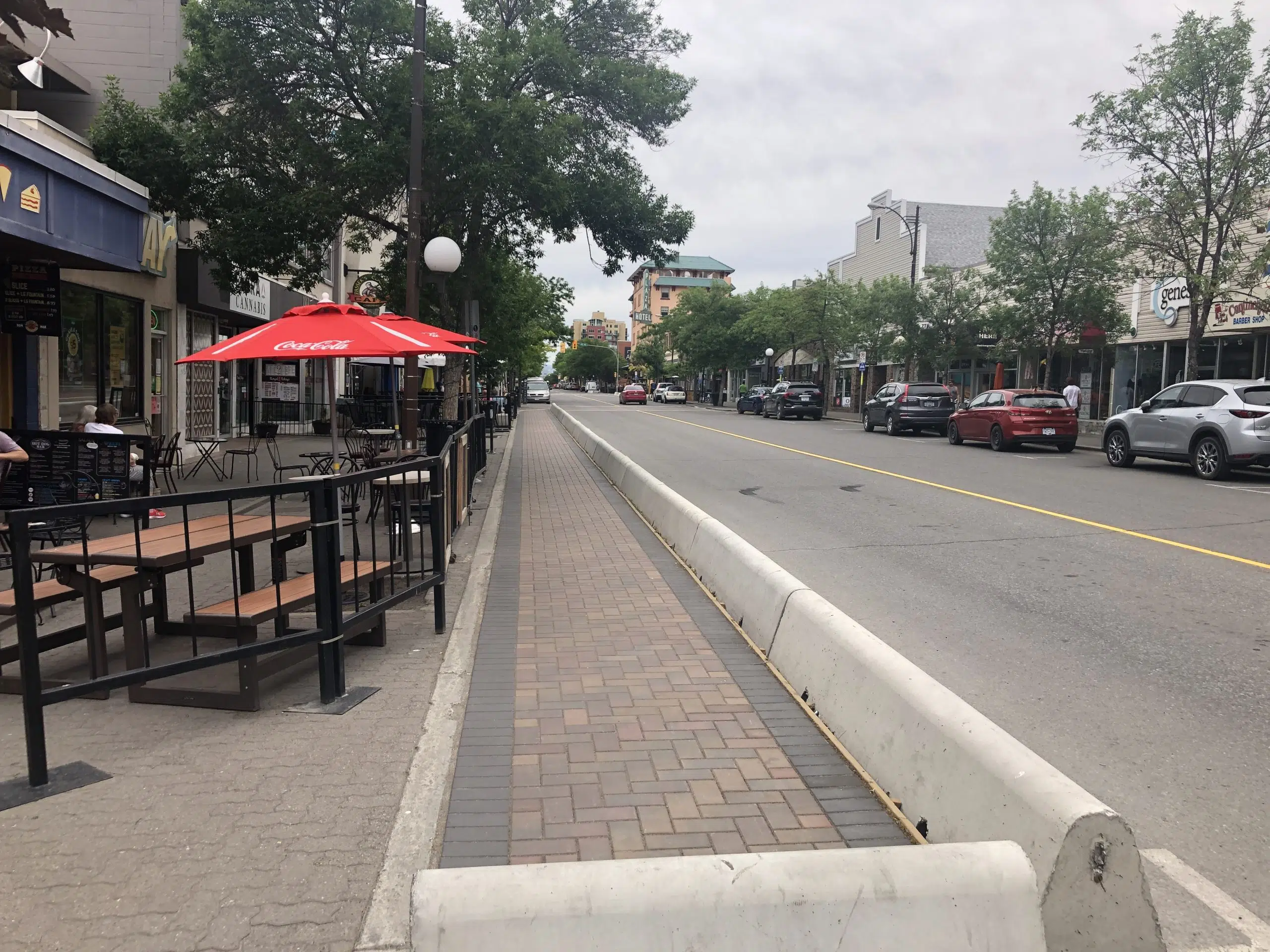
The City of Kamloops says all extended patios or Temporary Expanded Service Areas (TESAs) that were put up last year will stay up until this fall.
But Planning and Development Manager, Rod Martin, tells NL News that the City is currently working with the province on liquor licensing regulations on these temporary patios which expire on June 1.
“We’re going to try and get them to extend it to the end of the 2022 season to buy the restaurants a little bit more time to go through the process of getting approvals in place for 2023,” Martin said. “We are in discussion with them with liquor licensing right now.”
The city has spent about $197,000 to build sidewalk extensions around these extended patios, the majority of which are downtown. There have also been 43 parking stalls displaced downtown, which is costing up to $15,000 per month in lost parking revenue, according to the City.
In a statement to NL News, BC’s Public Safety and Solicitor General says restaurants and bars can continue to operate a patio without liquor service past that June 1 date, however, the owners would need to have the permits and meet local government requirements.
“If a licensee is operating a patio under a TESA, they would need approval from the LCRB to continue serving liquor in the service area after the expiry date,” the statement said. “LCRB’s approval of the patio is only required if the area will be used for liquor service.”
“Government has heard that the June 2022 extension is too soon for some licensees and local governments to get patio policies in place and applications submitted. Work is advancing to assist as some communities require more time.”
The Ministry statement also noted that while TESA applications were processed over the last two years at no charge as part of government’s COVID-19 response to support industry, all licence applications and change requests are typically subject to fees.
“To apply to make a TESA permanent, licensees pay a one-time application fee that ranges from $330 to $440,” the statement said. “Licensees will typically need to submit an application for structural change, with scaled floor plans that show the proposed service area.”
The Ministry says these structural change applications could take as long as 10 months to approve, but that includes time that the application may spend before local authorities, including any public consultations that may be required.
“Licensees are encouraged to consult their local authorities to ensure they understand requirements prior to submitting their applications to LCRB,” the statement added.
“If the local government or Indigenous Nation accepts the application for consideration and subsequently determines they will not approve it, the application fees are non-refundable.”
No Fees Planned in Kamloops this year
Martin told NL News the City of Kamloops has no plans to impose any extra fees to allow the current patios to remain though to the fall.
“We don’t have approvals to expand to any additional restaurants at this point. It they are not needed, we would potentially remove them to free up some parking on the streets but right now the whole thing is status quo,” he said. “If the liquor licence expires, they can still use the area to serve food.”
“You can sit down and have a coffee, there are a couple of ice-cream shops that have outdoor patio areas. There is even one that we have through the Chamber of Commerce that is just an area to socialize. Those can remain but where it comes into play is whether you are allowed to serve alcohol out in those areas.”
Martin says city staff plan to go before council this fall to see if there is an appetite to make some or all of these temporary patios permanent, and whether there should be any fees brought in at that time to cover the costs moving forward.
“There has been a lot of support for these patios so I imagine it is something we will look favourably upon,” he said. ” I think there will be a lot of pressure to try and keep them in place, so we’ll see in the fall.”














